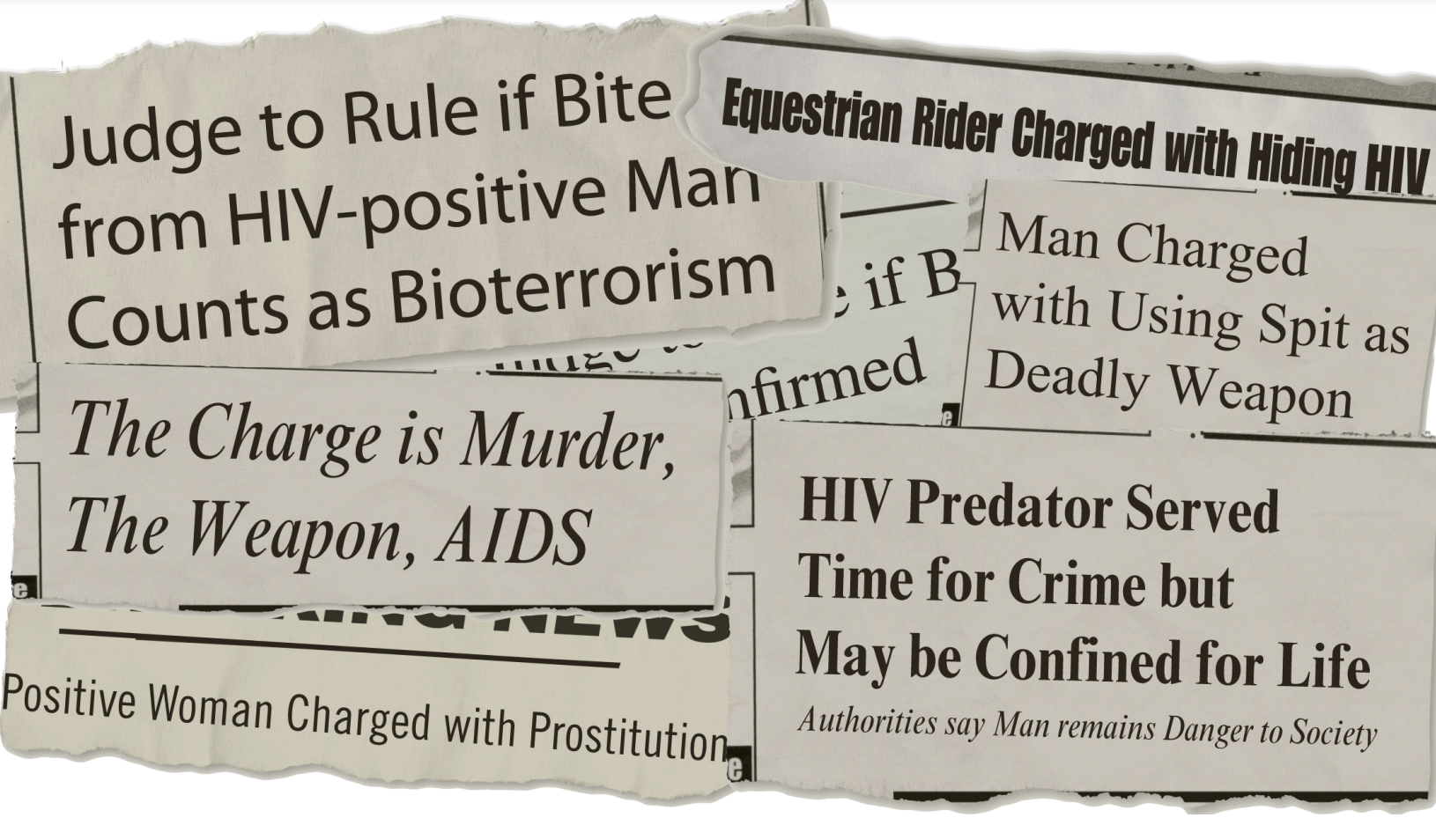In the mid-’90s at Washington State Penitentiary, a corrections officer (CO) and I had been yelling at each other for a while until eventually he ordered me back to my cell. When he called me back out to go see the sergeant, the CO in the security booth at the end of the hall buzzed open the electronic sliding door, then shut it in my face each time I tried to go through. After the third time, I turned to the glass he was sitting behind and spat on it.
The booth was completely sealed—I couldn’t even see him, it’s all one-way glass—but he started yelling about how I’d just tried to give him AIDS. Over the intercom, so everyone across three tiers could hear him.
To this day, not one person has ever contracted HIV that way because the virus isn’t transmitted through saliva, but this was back when COs still wore makeshift Hazmat suits to bring me food. I didn’t end up getting an infraction for the original argument, but I did get one for “intentional transmission of a communicable disease.”
At the hearing a few days later, I was promptly found guilty, which meant I lost all the good time I’d had on my sentence at that point. I wasn’t sent to the hole, and years later I got the good time back anyway, but what angered me was knowing I only got infracted because they knew I have HIV. The CO knew writing me up for assault would never stick. He also knew my reputation in prison wouldn’t necessarily suffer if my record showed I’d assaulted a cop, but that it’s a different story if it shows you tried to give someone AIDS.
Everyone already knew my HIV status. But aside from the fact that that’s not common in prison, it didn’t mean I wanted that information disclosed on a state document. Over and over again, the right to medical privacy always seemed to vanish when it came to living with HIV.
Tennessee is the only state that forces sex workers with HIV to register as “violent sex offender[s]” for the rest of their lives.
In late October, the American Civil Liberties Union, the Transgender Law Center and the ACLU of Tennessee filed a federal lawsuit against the state of Tennessee on behalf of four women convicted under its “aggravated prostitution” statute. The lawsuit, OUTMemphis v. Lee, is the first to challenge a state’s HIV criminalization law as a violation of the Constitution and the Americans with Disabilities Act.
The Act protects people from discrimination on the basis of their HIV status, and the fact that Tennessee uses HIV status to put people on a lifelong sex offender registry is discrimination to an obscene degree.
Through the late ’80s when I was doing survival sex work, and the early ’90s when I learned my status, states were criminalizing HIV transmission one by one. Though in recent years many have been rolling back or reforming such statutes, 25 states still have some form of HIV criminalization on the books. Some require you to disclose your status to sexual partners or people you share needles with; some carry life sentences.
But only Tennessee forces sex workers with HIV to register as “violent sex offender[s]” for the rest of their lives for no other reason than knowing their status. Officially, that is. Unofficially, Tennessee has used this law to target Black women.
Criminalizing sex work and HIV doesn’t improve public health; it worsens it by discouraging people at higher risk from getting tested.
Without HIV as a factor, sex work in Tennessee is a misdemeanor. If an undercover cop solicits a sex worker and arrests them for agreeing, they might be out of jail by the end of the day. If they have HIV, they might be charged with a felony and go to prison, then forced onto a publicly accessible list that permanently cuts them off from stable housing and employment. And privacy.
One of the most insidious parts of HIV criminalization is that these laws are often predicated on “intentional” exposure. That doesn’t refer to whether HIV harm reduction measures like condoms or PrEP or antiretroviral medications were involved. It refers to knowing your status. If there’s evidence that you know you have HIV, then you were knowingly transmitting the virus. No actual transmission, or even physical contact, has to occur in order to be found guilty.
Criminalizing sex work and blood-borne disease transmission doesn’t improve public health; it actively worsens it, by discouraging people at higher risk from getting tested.
HIV today is considered a chronic diagnosis, not a terminal one. The women suing Tennessee for discriminating against them on the basis of their HIV status, and the other 79 people the state has convicted of “aggravated prostitution,” have done nothing to warrant a punishment that lasts the rest of their lives. If a law can only be broken by a specific group of people, it shouldn’t be a law.
Image courtesy of Center for HIV Law and Policy




